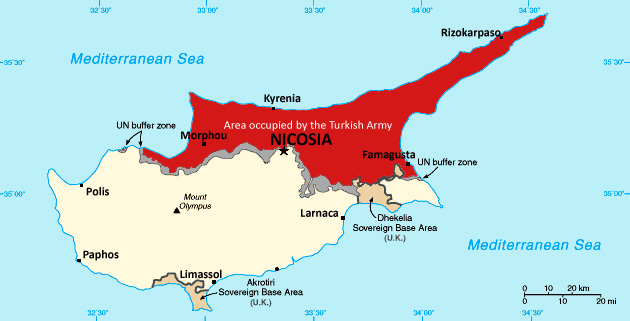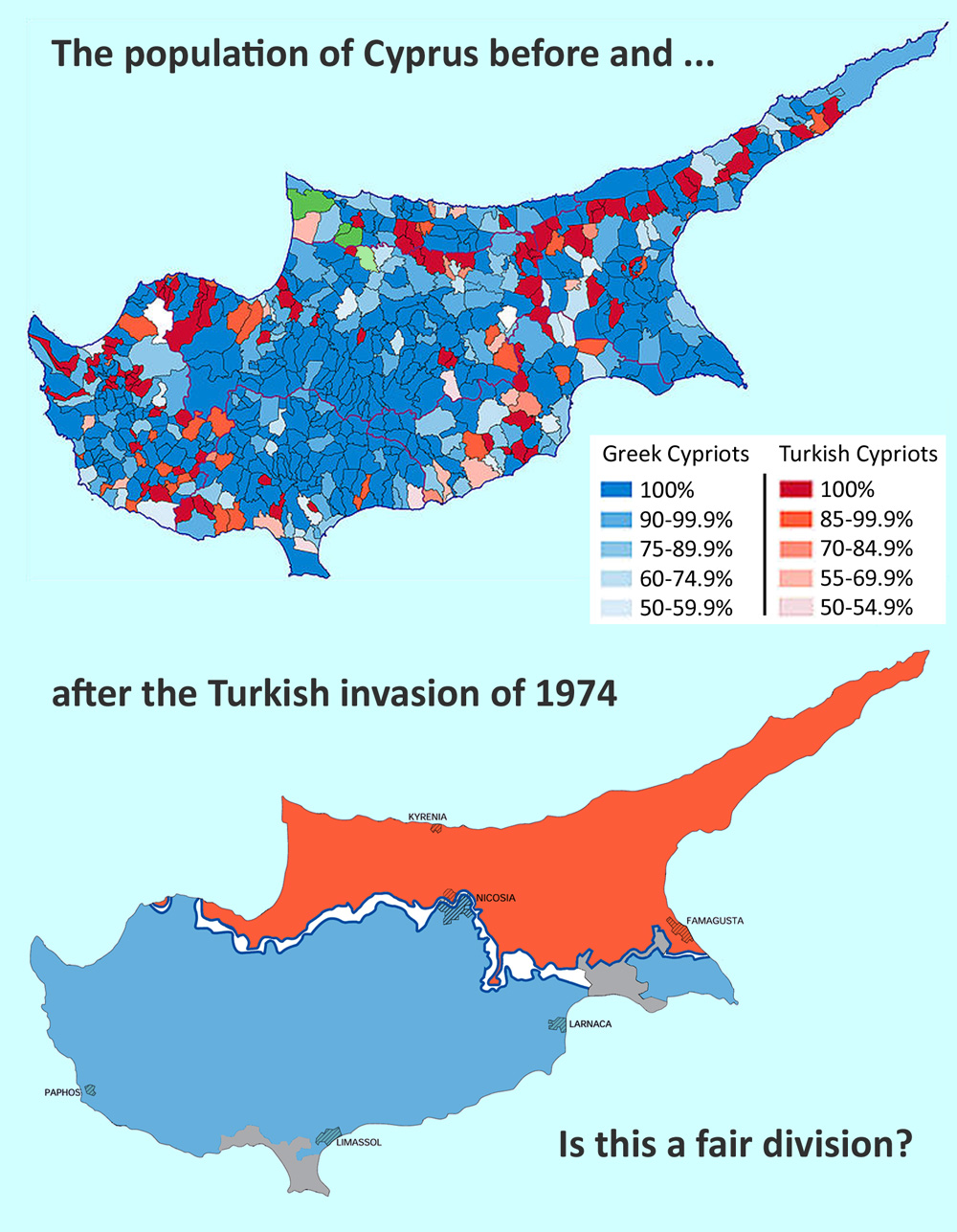Σ.Ε.Κ.Α. Victoria

The Justice for Cyprus Co-ordinating Committee, Webmaster: Pavlos Andronikos

The Justice for Cyprus Co-ordinating Committee, Webmaster: Pavlos Andronikos

In 1974, Turkey invaded Cyprus, divided the island by force, and ethnically “cleansed” the massive area overrun by the Turkish army. Five decades later, the island is still divided. That is because none of the major powers have put any real pressure on Turkey, despite many UN resolutions calling for the withdrawal of Turkish forces.
On the contrary, pressure has been exerted on the Republic of Cyprus to make concession upon concession in the hope that a package acceptable to Turkey would eventually be arrived at!
Thus, in 2004, we ended up with the Annan Plan, into which Annan incorporated, even at the last minute, further concessions to Turkey, requested by Turkey but not endorsed by the Greek negotiators. The Cypriots, when asked to vote on the Plan in a referendum, responded with a defiant “no”, seeing it as little more than a way of legitimising and perpetuating the division of the island—and letting Turkey off the hook.
At the heart of the matter is a straightforward question: Should the results of illegal invasion, partition by force, and ethnic cleansing be accepted and allowed to stand? And the sad truth is that, in Cyprus’ case, to date they have been.
In contrast, the Russian invasion of Ukraine is being powerfully opposed by the West. Why this discrepancy? Why have the Cypriots been abandoned? They have been waiting for justice for decades.
Unfortunately, following the Turkish invasion, Cyprus has come to be seen, erroneously, as made up of a Greek “South Cyprus” and a Turkish “Northern Cyprus”. However it is wrong to identify the northern part of Cyprus which is currently occupied by the Turkish Army as Turkish, and equally wrong to identify the south as solely Greek. Prior to the Turkish invasion there was no large area of Cyprus that was purely Turkish or Greek. There were Greek and Turkish villages, as well as mixed villages, scattered all over the island, but overall the Greeks were in the majority, 80% to 18%.

This unfair and inhumane division came about because:
• In 1974, some 164,000 Greek Cypriots—about one third of the total population—were forcibly expelled from the northern part of the island. This is a war crime.
• More than 160,000 settlers from Turkey were brought into Cyprus illegally to colonize the occupied area and alter the demographic character of the island. This too is a war crime. (Fourth Geneva Convention, Section III, Article 49: “The Occupying Power shall not deport or transfer parts of its own civilian population into the territory it occupies.”)
In addition, there has been a deliberate and systematic attempt by Turkey to destroy the Greek and Christian cultural heritage of the north of Cyprus, and to erase all evidence that Greek Cypriots were once the majority there, before the invading Turkish Army forced them to flee.
by Pavlos Andronikos
“The Cyprus problem remains unresolved despite the many efforts that have been made from time to time. The problem has not been solved due to Turkey’s refusal to accept a solution that would be to the benefit of the people of Cyprus. I firmly believe that the time has come for the problem to be solved in a just, viable and functional way and for the principles of international law to be restored; principles that Turkey violates through the invasion it carried out in 1974 and through the occupation of a large part of our homeland....”
Demetris Christofias, President, Republic of Cyprus
28 February 2008